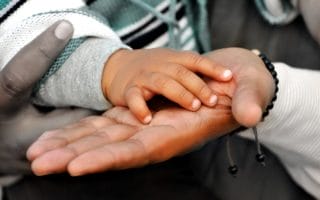Women have played a significant role in the armed forces for centuries, and their contributions to national defense continue to be invaluable.
In recent decades, the number of women in the military has steadily increased, and with this increase comes the need to address gender-specific issues related to veterans’ healthcare and disability claims.
While both male and female veterans face challenges when navigating the disability claims process, women veterans often encounter unique obstacles and require specialized support systems.
For this reason, we decided to explore the distinct challenges faced by women veterans in seeking disability benefits and highlight the importance of customized support systems to address their specific needs.
Gender-Specific Challenges for Female Veterans in the U.S.
Underrepresentation
Historically, the military has been a male-dominated institution, which has led to the underrepresentation of women veterans in various aspects of veterans’ affairs, including disability claims.
As a result, the specific health issues and challenges faced by women in the military have been less visible and understood, leading to potential biases and misconceptions during the claims process.
Gender-Specific Health Conditions
Women veterans can experience gender-specific health conditions related to their service. For example, the high prevalence of military sexual trauma (MST) among female service members can lead to mental health issues such as post-traumatic stress disorder (PTSD) and depression.
These conditions can be challenging to prove and require specialized support when filing disability claims, making it important to know the best way to file a VA disability claim.
Family Caregiving Responsibilities
Women veterans often face unique challenges related to family caregiving responsibilities. Many women in the military are also mothers, and they may struggle to balance their caregiving roles with their own health needs. This can lead to delays in seeking medical treatment or filing disability claims.
Disparities in Healthcare Access
Research has shown that women veterans may face disparities in healthcare access and quality, which can impact their ability to receive timely and appropriate care for service-related conditions.
These disparities can further complicate the disability claims process by making it difficult for women veterans to establish a clear link between their military service and their health conditions.
Support Systems for Women Veterans
Recognizing the gender-specific challenges faced by women veterans, it is crucial to establish support systems that address their unique needs and promote equitable access to disability benefits. Here are some key elements of effective support systems for women veterans:
Gender-Sensitive Training
Training for personnel involved in the disability claims process should include a focus on gender sensitivity and awareness. This training can help reduce biases and misconceptions related to women veterans’ service and health conditions.
Specialized MST Programs
Given the prevalence of MST among female service members, specialized programs should be established to support women veterans who have experienced such trauma.
These programs can provide trauma-informed care, counseling, and consultancy services to help survivors navigate the disability claims process.
Family Support Services
To address the challenges of family caregiving responsibilities, support services such as childcare assistance and flexible scheduling should be made available to women veterans. These services can help women veterans access medical treatment and participate in the disability claims process without neglecting their caregiving roles.
Healthcare Equity Initiatives
Efforts to reduce healthcare disparities among women veterans should be a top priority. This includes ensuring that women veterans have access to comprehensive healthcare services and that their unique healthcare needs are addressed promptly and effectively.
Outreach and Education
Many women veterans may not be aware of the disability benefits they are entitled to or may face barriers in accessing information about the claims process. Outreach and education initiatives should be targeted specifically at women veterans to inform them about their rights and guide them through the claims process.
Female Veterans Service Officers
The presence of female veterans service officers who can relate to the experiences of women veterans can be invaluable. These officers can provide support, advocacy, and guidance tailored to the unique needs of female veterans navigating the disability claims process.
Peer Support Networks
Peer support networks composed of women veterans who have successfully navigated the disability claims process can offer invaluable assistance and encouragement. These networks can help women veterans connect with others who understand their experiences and can provide guidance based on personal insights.
Final Thoughts
Women veterans have made significant contributions to the armed forces, and it is essential to ensure that they receive the support and benefits they deserve when they return to civilian life.
Addressing gender-specific challenges in disability claims is a crucial step in this process. By recognizing the unique obstacles faced by women veterans and implementing specialized support systems, we can help them access the disability benefits they need to lead healthy and productive lives after their military service.
It is our responsibility to honor their service by providing impartial and comprehensive support throughout the disability claims process, ultimately strengthening the bond between our nation and its women veterans.






Comments